The tweet which was deleted on Saturday was published under the headline of #FridayFact and claimed: “In 1833, the British government used £20m, 40% of its national budget, to buy freedom for all slaves in the empire. The amount of money borrowed for the Slavery Abolition Act was so large that it wasn’t paid off until 2015. Which means that living British citizens helped pay to end the slave trade.”
This reinterpretation of world history which elevates the moral values of descendants involved in Maafa (African enslavement and colonialism) is not uncommon within white supremacist and far right nationalist organisations. Maafa denial in the west is becoming more prominent. This is fuelled in part by the global ascendency of Afriphobic populists such as the US President Trump who recently called the entire continent of Africa a ‘sh**hole’ and the racist supporters driving the UK’s xenophobic Brexit movement.
Toyin Agbetu of the Ligali organisation argues that HM Treasury’s tweet was another variant of Maafa denial that works by trying to introduce a new historical narrative sympathetic to the rehabilitation of Britain’s racist past for a new generation unfamiliar with the UK's imperial history.
He said “The £20m paid in reparation by the British government was not only paid to the enslavers but also financed by the continued forced labour endured by Africans forced to endure an ‘apprenticeship’ period. The government then recouped this cost through transforming the system of slavery into one of colonialism where African people were no longer kidnapped from their homes but instead – enslaved and exploited on the Continent of Africa itself.”
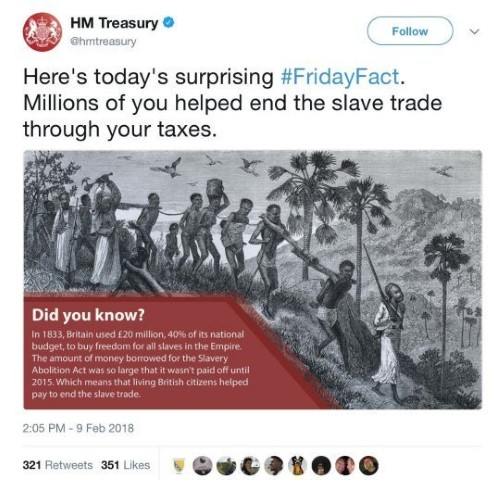
The British government continues to fail to address the issue of African enslavement reported as currently occurring in Libya. Last December saw multiple protests outside Westminster as traffic was brought to a standstill by hundreds of activists led by a coalition of organisers including the national African memorial group, #FreeMyTribe and #AfricanLivesMatter.
Chris Law, MP who took part in a parliamentary debate triggered by a petition created by Constance Mbassi Manga said such crimes were "violations of human rights and human dignity that are on an unthinkable scale… They have no place in our world,"
He urged the United Kingdom not to "stay silent or stand by in the face of such inhumane atrocities" but to instead join with the international community to tackle the problem.
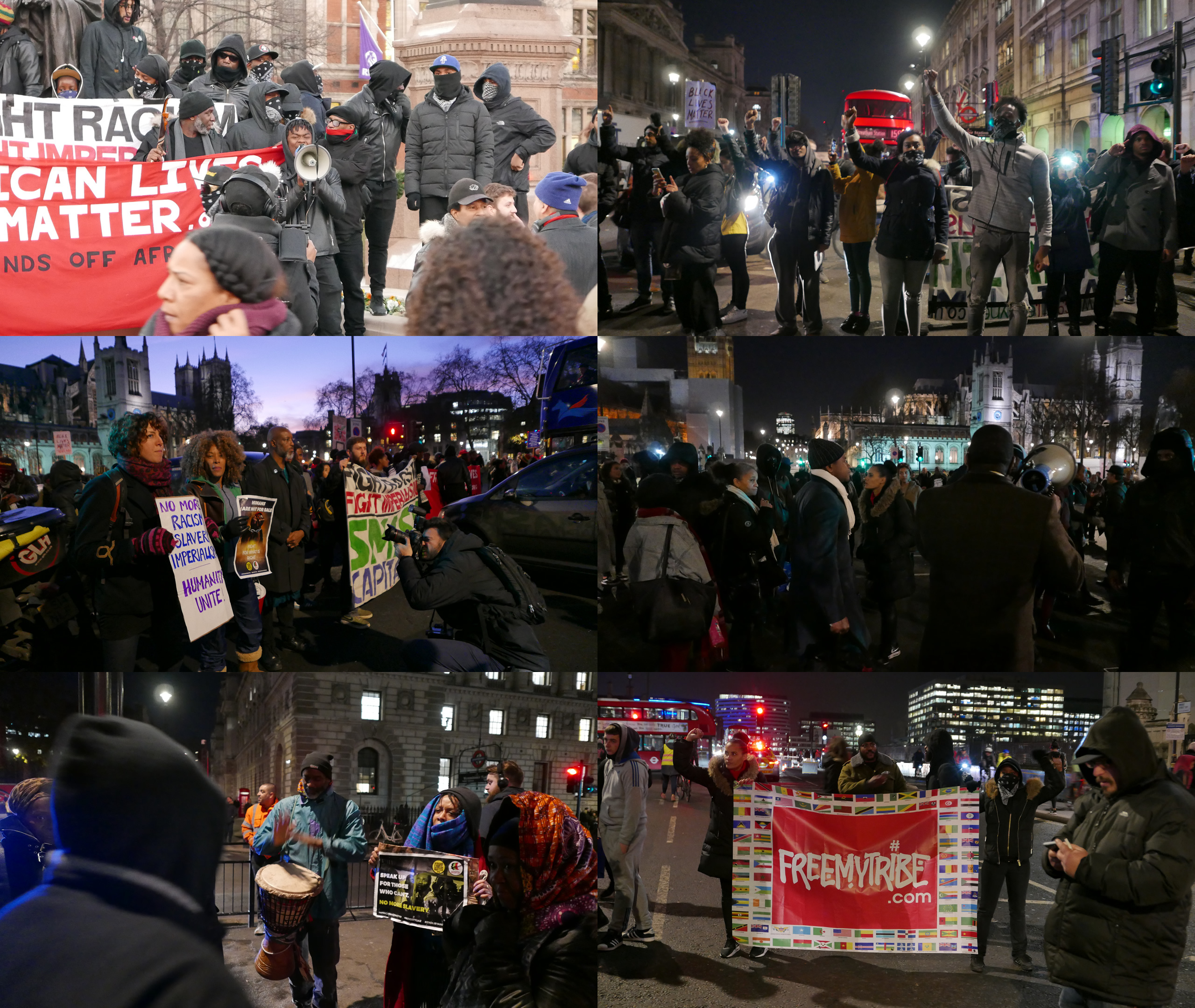
External Links
Let’s put an end to the delusion that Britain abolished slaveryUK lawmakers debate Libya slave auction footageSlavery Remembrance National Memorial - FacebookPut pressure on Libya to take action to stop enslavement of Black Africans.FreeMyTribe
Addressing Maafa denial and slavery apologists
This reinterpretation of world history which elevates the moral values of descendants involved in Maafa (African enslavement and colonialism) is not uncommon within white supremacist and far right nationalist organisations. Maafa denial in the west is becoming more prominent. This is fuelled in part by the global ascendency of Afriphobic populists such as the US President Trump who recently called the entire continent of Africa a ‘sh**hole’ and the racist supporters driving the UK’s xenophobic Brexit movement.
Toyin Agbetu of the Ligali organisation argues that HM Treasury’s tweet was another variant of Maafa denial that works by trying to introduce a new historical narrative sympathetic to the rehabilitation of Britain’s racist past for a new generation unfamiliar with the UK's imperial history.
He said “The £20m paid in reparation by the British government was not only paid to the enslavers but also financed by the continued forced labour endured by Africans forced to endure an ‘apprenticeship’ period. The government then recouped this cost through transforming the system of slavery into one of colonialism where African people were no longer kidnapped from their homes but instead – enslaved and exploited on the Continent of Africa itself.”

HM Treasury publishes a Maafa denial #FridayFact on Twitter
Maafa denial
The British government continues to fail to address the issue of African enslavement reported as currently occurring in Libya. Last December saw multiple protests outside Westminster as traffic was brought to a standstill by hundreds of activists led by a coalition of organisers including the national African memorial group, #FreeMyTribe and #AfricanLivesMatter.Chris Law, MP who took part in a parliamentary debate triggered by a petition created by Constance Mbassi Manga said such crimes were "violations of human rights and human dignity that are on an unthinkable scale… They have no place in our world,"
He urged the United Kingdom not to "stay silent or stand by in the face of such inhumane atrocities" but to instead join with the international community to tackle the problem.

Protest against slavery in Libya outside Westminster Parliament - 18 Dec 2017
External Links
Let’s put an end to the delusion that Britain abolished slaveryUK lawmakers debate Libya slave auction footageSlavery Remembrance National Memorial - FacebookPut pressure on Libya to take action to stop enslavement of Black Africans.FreeMyTribe
Ligali is not responsible for the content of third party sites
Addressing Maafa denial and slavery apologists
Speak Out!
Click here to speak out or read (1) comments about this articleMaafa denial that works by trying to introduce a new historical narrative sympathetic to the rehabilitation of Britain’s racist past for a new generation.
Toyin Agbetu, Ligali
See Related:
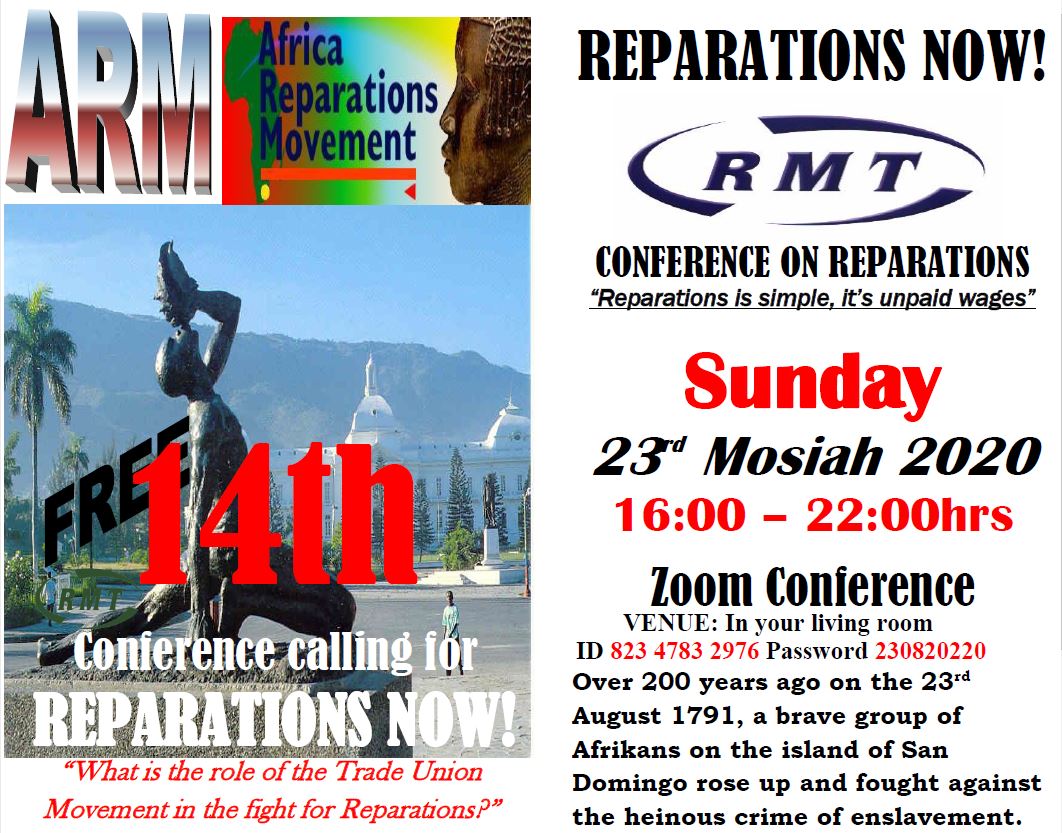
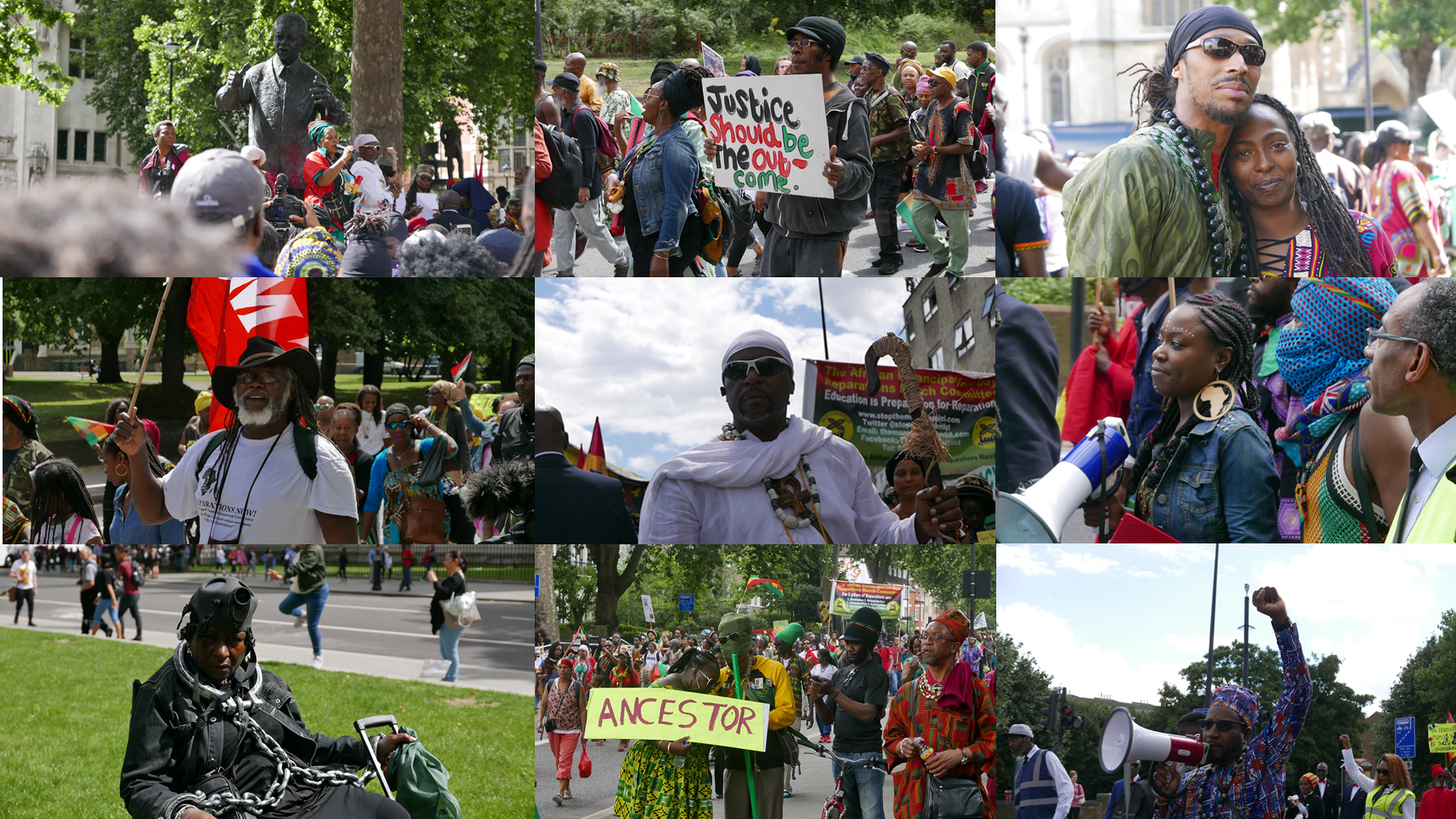
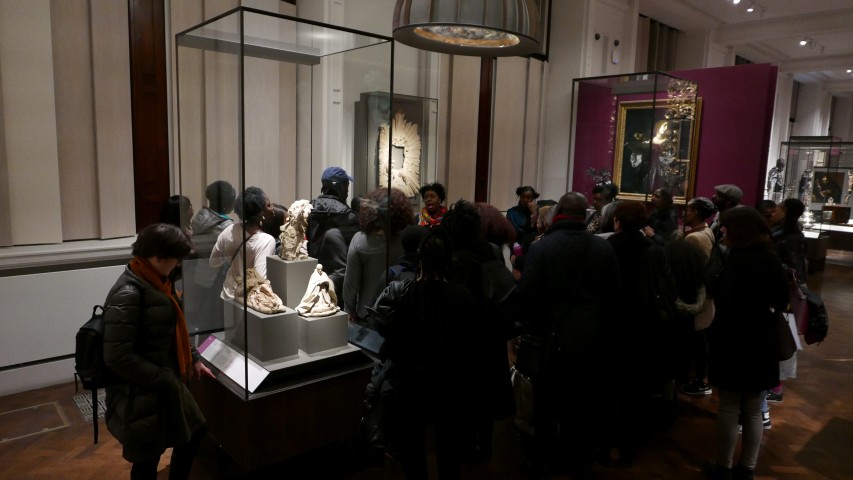

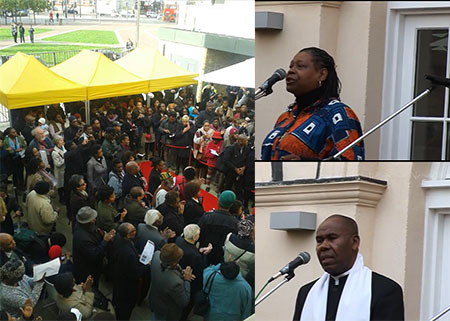
Get involved and help change our world